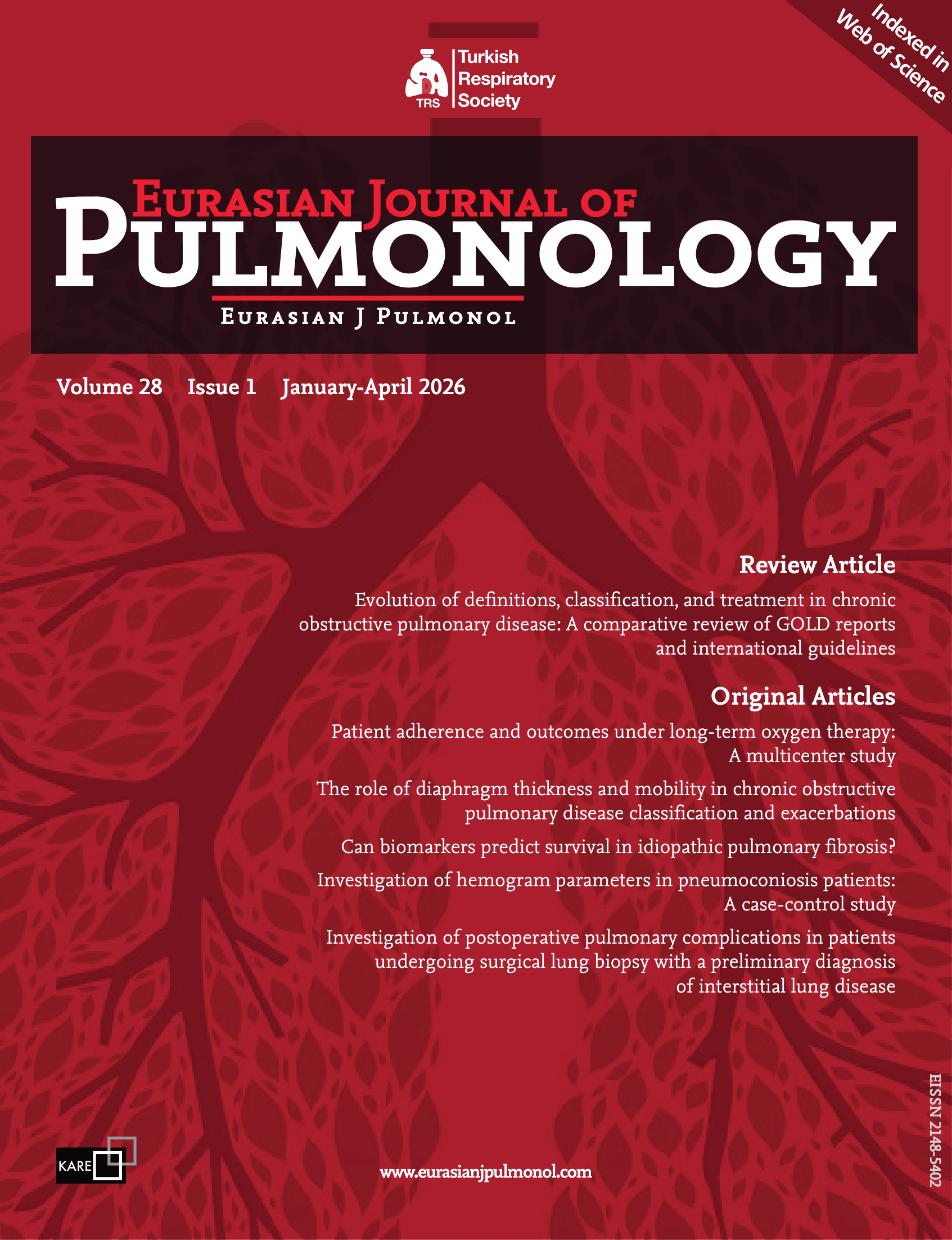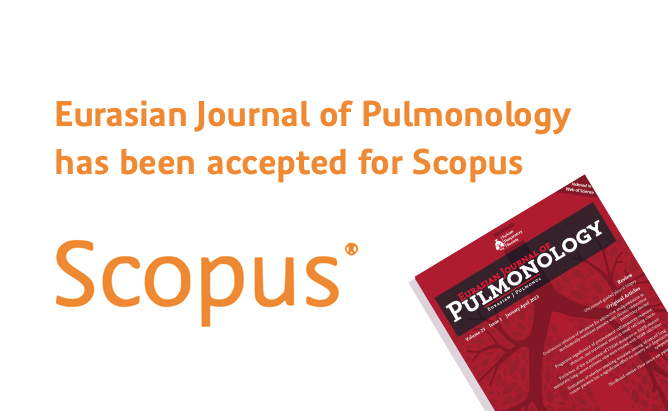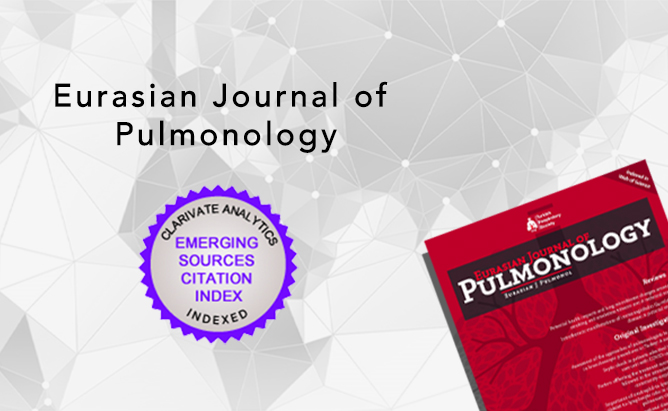2Department of Chest Diseases, İzmir Katip Çelebi Üniversity, Atatürk Training and Research Hospital, İzmir, Türkiye
3Department of Chest Diseases, İzmir Bakırçay University, Çiğli Training and Research Hospital, İzmir, Türkiye
Abstract
BACKGROUND AND AIM: The purpose of the study was to examine the host risk factors related to mortality in patients hospitalized with coronavirus disease 2019 (COVID-19) pneumonia and to find a COVID-19 mortality score based on these factors.
METHODS: Subjects hospitalized with COVID-19 pneumonia between March 11, 2020, and October 1, 2020, were retrospectively analyzed. The age, gender, smoking status, body mass index, blood group, severity of pneumonia, comorbidity, reverse transcriptase-polymerase chain reaction positivity, use of angiotensin-converting enzyme (ACE) inhibitors, radiological changes, and mortality rates of the patients who had proven COVID-19 pneumonia were recorded. Patients were divided into two groups according to mortality status, and the two groups were compared. The cutoff values, sensitivity and specificity values, and odds ratios were calculated to predict mortality of the new scoring system.
RESULTS: A total of 422 patients (51 mortal and 371 nonmortal) participated in the study. The univariate regression analysis showed that age, male gender, smoking, comorbidity, and using ACE inhibitors were prognostic host risk factors for COVID-19-related mortality. A new scoring model with the combination of risk factors named Co-AMSCA was created in the study. The cutoff value of the system was found to be 3.5 with 88.4% sensitivity and 65.5% specificity. The mortality risk in patients with a Co-AMSCA mortality score above 3.5 points was 7.8 times higher than that in patients whose score was lower than 3.5 points. In multivariate logistic regression analysis, older age and smoking were significant risk factors for mortality.
CONCLUSIONS: A mortality score was created based on host risk factors, which are easy to calculate and do not need laboratory tests and do not waste the time of the clinicians. This study showed that by using Co-AMSCA scoring model, it is possible to achieve a mortality prediction in COVID-19 patients who are hospitalized due to pneumonia.




 Mine Gayaf1
Mine Gayaf1 




